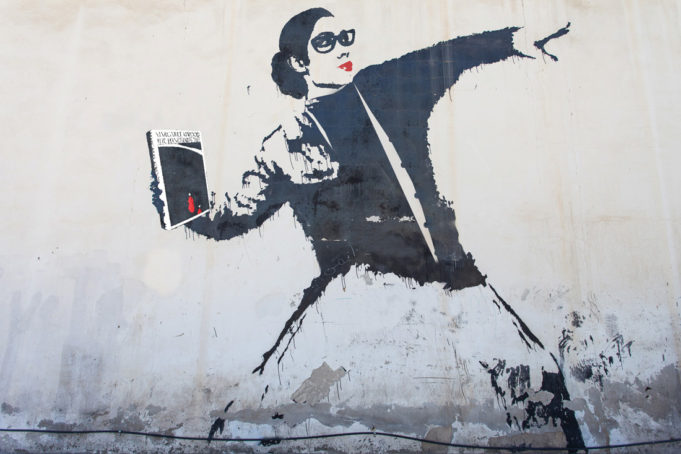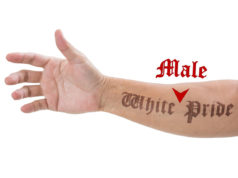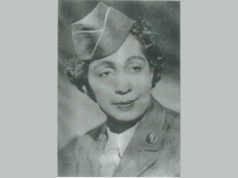Those who know, know.
Those who don’t know, need to be told
I am infected. I am a carrier.
I am contagious.
I didn’t realize it myself, at first. And then, when I became aware, I was afraid. It made me different. I wanted to hide it. I tried to hide it. I wasn’t sure I wanted anyone else to know. I didn’t know what they would think.
It wasn’t my fault, really. I was exposed at a very young age.
I had no idea what I had contracted. And by the time I understood, it was too late. I never completely recovered. It spread through my existence like a wildfire, and I was horrified by the implications.
Early on, I averted my eyes and tried to conceal the truth. I wanted to be normal and fit in. But I couldn’t. And I didn’t know it then, but I never would.
I was sick, and that was the end of it and certainly the end of any real, normal beginning. A normal life. Commonality with most of those around me. Even some that I loved. As I grew older, my condition grew worse, but it became more manageable. I was more realistic. I learned to accept the presence of the contagion. I had to accept the finality of my condition, and I eventually did. And I’m glad I did. Even now when people like me are being quarantined.
I was reading a book called If It Bleeds. I was no longer looking for answers or a cure for my condition. Or even an articulation of my affliction. The malaise that defined my existence, practically for as long as I could remember, affected me in unexpected ways and changed the trajectory of my life. It was a sentence to be served.
I was reading If It Bleeds, and a line jumped out. It surprised me, and I read it again. And then I read it out loud.
“A reader is a carrier, not a creator.”
A reader is a carrier, not a creator.
I had been and still was a carrier.
I was exposed to multiple strains of the contagion very early. I couldn’t list them all. I remember The Great Brain series by John D. Fitzgerald. I remember The Count of Monte Cristo by Alexander Dumas. Bob Dylan. Edgar Rice Burroughs. Frankenstein by Mary Shelley. Joseph Conrad. Franza Kafka. Herman Melville. Hemingway. F. Scott Fitzgerald. Tolkien. Henry Miller. Shakespeare. Poe. H.G. Wells. Joseph Heller. National Defense by James Fallows. Albert Camus, Nietzsche. 1984 — George Orwell. The Heart Is a Lonely Hunter by Carson McCullers. Flannery O’Connor. Plato. Steinbeck.
Steinbeck.
In 1987, I remember sitting in a Texas State University honors course called Science Fiction and the Novel. We were assigned a book to read before each class, and the whole course was mostly just meeting once a week to discuss each reading. A few lectures. I don’t recall an exam. Maybe one or two papers. I can’t remember the professor’s name. Maybe Deduck. Dr. Deduck. She had been afflicted as well. When she was young, she and a friend went looking for John Steinbeck’s house in Sag Harbor (New York) and found it. Steinbeck accosted them in his driveway and told them to beat it.
Yes, Deduck had been the professor.
I remember reading Ursula K. Leguin’s The Left Hand of Darkness. Maybe Arthur C. Clarke’s Childhood’s End. And Frank Herbert’s Dune — which has never left me. None of them have ever left me. But mostly I remember The Handmaid’s Tale by Margaret Atwood.
It wasn’t my favorite, really. It still isn’t.
It’s embarrassing to admit, now, but I thought Handmaid’s Tale was a little reactionary and maybe even paranoid. It was the 1980s, and abortions were legal, people were pro-choice. And women were free to choose their partners and procreate or not. And have sex and abort the procreation process if they needed or wanted to. It was their body in the civilized world, and it seemed to me that people — even here in Texas — were mostly civil.
So, we read The Handmaid’s Tale and went to discuss it in class. But we had a visitor.
Our custom was to sit in a circle as we discussed the assigned book, knowledge shared, ideas debated. Our visitor was a traditionally attractive woman. Not showy, but sharp. Her hair was longer then and dark brown. Professor Deduck introduced her.
It was Atwood. Margaret Atwood.
I don’t remember what I said. She wasn’t famous yet, but she was the first serious writer I’d ever met face to face. I had a tendency to play contrarian (even then), but I don’t think I did that day. I hope I didn’t.
I doubt Atwood gave me a second thought. She was articulate and mildly daunting. But she wasn’t arrogant or condescending. She answered questions. My female classmates asked several. I was nonplussed.
I’d built up a tolerance. Cognitively speaking, my immune system was stronger by then. My early exposure had prepared me for deeper, prolonged exposures. I could be introduced to new ideas and different perspectives. I wasn’t susceptible to most strains of closed-mindedness. I could process new ideas, views, and opinions constructively and allow them to challenge my weaker positions, my naivete, and even my own ignorance. I could also utilize them to fortify my better-informed perspectives, tweak them, and articulate them more cogently. It happened more than once. It’s still happening.
I was a carrier, and the more strains and contagions I was exposed to, the stronger I got.
Gabriel Garcia Marquez. Kurt Vonnegut. Alex Haley. Pablo Neruda. Camille Paglia. T.S. Eliot. Rainer Maria Rilke. Anne Sexton. E.E. Cummings. Charles Bukoski. Sharon Olds (who also appeared at my university — I still have signed, dedicated copies of her work). John Gardner. Jack Kerouac. Emily Dickinson. Toni Morrison.
I didn’t shelter in place or turn away from my own inadequacies. I exposed myself more and more.
All Quiet on the Western Front by Erich Maria Remarque. Man’s Search for Meaning by Viktor Frankl. The Last Picture Show by Larry McMurtry. The Razor’s Edge by W. Somerset Maugham. The Unbearable Lightness of Being by Milan Kundera. Things Fall Apart by Chinua Achebe. Goodbye to a River by John Graves. Yukio Mishima. Che Guevara. Don DeLillo. Confederacy of Dunces by John Kennedy Toole. My Ishmael by Daniel Quinn. Hunter S. Thompson. Harold Pinter. Sam Shepard. Mark Medoff. Anthony Burgess. Dalton Trumbo. Randolph Bourne.
Frankenstein (again). Heart of Darkness (again). Grapes of Wrath (again). Dune, My Ishmael (again, again). “Bartleby, the Scrivener,” Billy Budd, “The Lottery” by Shirley Jackson. “The Wager” by Anton Chekov. So many other contagions. So many additional infections and, dissections. Inflections, really. Even vivisection.
Atwood had been prescient.
The Handmaid’s Tale is practically Texas by decree now.
McCullers saw it all at 23. Real human beings, with open minds and daring hearts, are lonely hunters. Steinbeck got ahead of himself. Or maybe just us. In the souls of the people, the grapes of wrath may have been filling and growing heavy — growing heavy for the vintage — but they were never harvested. We let them rot on the vine.
That’s why we are where we are today.
I was a carrier for years, but my infection eventually spread. I am now a creator.
And here in Texas — where creators are the cure and more carriers are our only hope, an asinine, government-mandated inoculation to make Texans immune to intellectual development has become a commercial requirement — to preserve the status quo, ignorance — which is the most dangerous pandemic of them all.
There are fewer and fewer Margaret Atwoods every year, and less of the population is introduced to books like The Handmaid’s Tale. The streaming cough-drop version is weak and less effective. The most constructive, evocative exposure is the book, the written word — the ineradicable imprint, the inimitable consumption of meaning, the most profound interaction with her mindfulness and her art.
Mary Shelley’s husband Percy was right. Poets are the unacknowledged legislators of the world. And that’s why what they have to say is being mitigated on every social platform and censored in libraries. The spoon-fed, toddler gruel on iPhones or television is bland and contains less intellectual fiber. As much as conservatives complained, raged, and protested about vaccinations and quarantines to protect against COVID-19, they love them, recommend them, and demand them to preserve statewide ignorance, imbecility, and an odious lack of empathy.
And we all know why.
Empathy is an indirect form of telepathy. A serious investigation can lead to mass germination. An insightful anecdote can be the antidote.
Conservatives consider conscientious, thoughtful creators anathema. Politicians want to limit the number of carriers and are committed to dumbing down members of their own constituencies to preserve general complacence.
It’s despicable and dangerous. It’s diabolical and dire. It spells our collective doom.
There is no plague like ignorance, and the Texas Legislature is mandating “vaccination” for us against the only cure.
Fort Worth writer and journalist E.R. Bills is the author of the upcoming Letters from Texas, 2021-2023.
This column reflects the opinions and fact-gathering of the author and not the Fort Worth Weekly. To submit a column, please email Editor Anthony Mariani at Anthony@FWWeekly.com. He will gently edit it for clarity and concision.













Well-written piece. I haven’t thought about some of these books in years, though I own all of them.
Our leaders’ hypocrisy on bodily autonomy knows no limits.